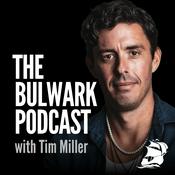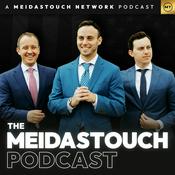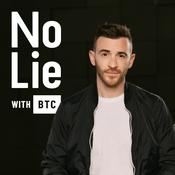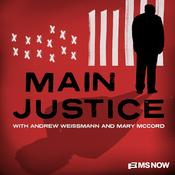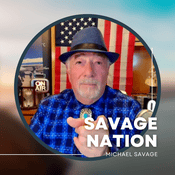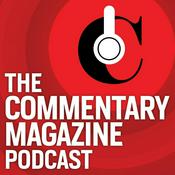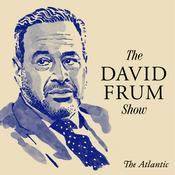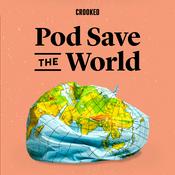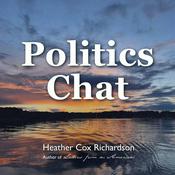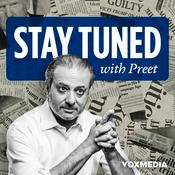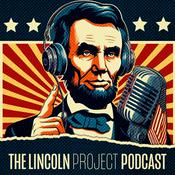43 episodes
- She’s in the Epstein files. It’s fine. She’s fine.
This week, Virginia and Cy are back together to dig into Virginia’s latest piece for The Nerve—Carol Cadwalladr’s new media venture—and it drops some bombs.
Virginia recently discovered she appears in the Epstein files, thanks to her time as a client of literary agent John Brockman and his organization, Edge. You know, the “intellectual salon” secretly bankrolled by Jeffrey Epstein. The one with no women, no cameras, and a whole lot of evolutionary psychology. Totally cool & normal stuff.
Virginia takes us inside how it happened—the pick-me dynamics, the billionaire dinners dangled like bait, the former Playboy Club office—and what it means that so many of the people we were supposed to think of as The Serious Thinkers were, it turns out, neck-deep in all of this.
We get into:
* How Virginia ended up in the Epstein files (and the surprisingly upsetting moment she realized it)
* John Brockman, Edge, and the intellectual-salon-as-grooming-operation pipeline
* The “pick me” trap: why smart women signed on, and what it cost them
* Social Darwinism dressed up in a blazer: the eugenics project hiding inside prestige science
* Why the books on the front table of Barnes & Noble were always kind of b******t
* Atomized ontology vs. relational ways of being (yes, we go there — and it rules)
* What getting out actually looked like, and why it felt like finally being able to breathe
* The emergent systems that might—might—give us a future worth having
What Rough Beast is a reader-supported publication. To receive new posts and support this work, consider becoming a free or paid subscriber.
This is a public episode. If you'd like to discuss this with other subscribers or get access to bonus episodes, visit virginiaheffernan.substack.com/subscribe - This week we talk to friend of What Rough Beast Cy Canterel—whose Substack Abstract Machines is essential reading right now—about why Canadian Prime Minister Mark Carney just gave a eulogy for neoliberal capitalism at Davos, and what comes after the fiction falls apart.
We discuss:
* Why Carney’s Davos speech was the diplomatic equivalent of taking down the communist party slogan from the greengrocer’s wall (Václav Havel would be proud)
* The surprisingly dark connection between Horatio Alger, Jeffrey Epstein, and the extractive core of the American Dream
* What H-Mart Gate revealed about proximity to power, model minorities, and who gets to be Cassandra
* Why we need to stop asking powerful people to change themselves (because they won’t)
* Mass transitions, rubber bands, and the moment before the grid snaps
* How level three maintenance techs have more power than your congressman (and what that means for resistance)
* Direct action vs. endless petitioning: where the real pressure points are in a failing system
* Cy’s wild career arc from coding on Andy Warhol’s software to working inside GE as it collapsed to becoming a perfumer because smell can’t be digitized
Plus: why hope means accepting that the future is dark (impenetrable, not doomed), the wealth defense industry as target, and what it means to finally stop living by lies.
What Rough Beast is a reader-supported podcast. To receive new posts and support my work, please consider becoming a free or paid subscriber.
This is a public episode. If you'd like to discuss this with other subscribers or get access to bonus episodes, visit virginiaheffernan.substack.com/subscribe - This week on What Rough Beast, we talk to Trevor Mitchell, a reporter on the ground in Minneapolis for the nonprofit publication MinnPost. We wanted to discuss with him what everyday life looks like under ICE occupation—and how the Twin Cities are fighting back. We discuss:
* Why the most important stories are the hardest to tell—and why print journalism can reach people cameras can’t
* Mutual aid networks sprouting everywhere from churches to sex shops as neighbors step up to protect each other
* The Women with Walkers—senior activists protesting from chapel pews who’ve been doing this since 1967
* How half of the city’s Spanish-speaking students don’t show up to school and parents are too terrified to send their kids outside
* Whether this feels like war reporting, pandemic reporting, or something entirely new
* Why Minnesota—and what it means when 3,000 federal agents occupy American streets
What Rough Beast is a reader-supported publication. To receive new posts and support this work, please consider becoming a free or paid subscriber.
This is a public episode. If you'd like to discuss this with other subscribers or get access to bonus episodes, visit virginiaheffernan.substack.com/subscribe - This week we talk to “What Rough Beast” regular Cy Canterel about fractured realities, fascism’s fatal flaw, and why keeping a diary might be the most radical act you can do right now. She joined us for a live this past week.
We discuss:
* How the Renee Good murder revealed that motivated reasoning—not actual ambiguity—is fracturing American reality
* Why the paradox of tolerance matters now: what does a pluralist society owe people who … can’t handle plurality?
* The underground genealogy of the current moment (spoiler: it’s been brewing in evangelical Christianity since the 1960s)
* Iris Origo’s war diaries and why putting pen to paper might save your sanity when propaganda becomes a deafening cacophony
* The difference between teaching and indoctrination—and what happens when a Mormon girl looks at a map and asks “wait, what are the chances?”
* Why fascism is constitutionally terrible at survival (it’s suicidal by design) but also: the body count still matters
* Mutual aid, record-keeping, and how to not go insane while toggling between doomscrolling and actually living your life
This post is free! But, sadly, the work we do here is not :( Won’t you chip in just a few bucks a month to keep us going? virginiaheffernan.substack.com/subscribe
More News podcasts
Trending News podcasts
About What Rough Beast
What Rough Beast, hosted by Virginia Heffernan (Wired, Trumpcast) and Stephen Metcalf (Slate, Culture Gabfest) is a podcast where we bear witness to America’s demise, and ask what might be built from the rubble. The sludge. The sparkly phosphorescent faerie dust of recombinant DNA.
It is a spiritual successor to Trumpcast, but with a radical reimagining. Instead of focusing on opposing Trump or trusting institutions, this podcast explores imaginative, unexpected responses to our current political moment. The show takes inspiration from the '68ers' motto "all power to the imagination" and seeks unconventional solutions beyond traditional political frameworks. virginiaheffernan.substack.com
Podcast websiteListen to What Rough Beast, The Daily and many other podcasts from around the world with the radio.net app

Get the free radio.net app
- Stations and podcasts to bookmark
- Stream via Wi-Fi or Bluetooth
- Supports Carplay & Android Auto
- Many other app features
Get the free radio.net app
- Stations and podcasts to bookmark
- Stream via Wi-Fi or Bluetooth
- Supports Carplay & Android Auto
- Many other app features


What Rough Beast
Scan code,
download the app,
start listening.
download the app,
start listening.



